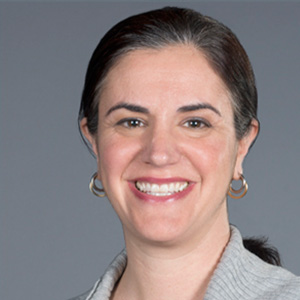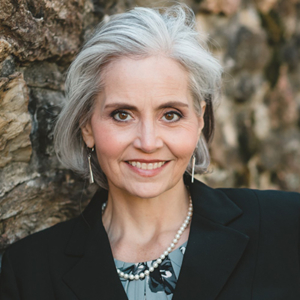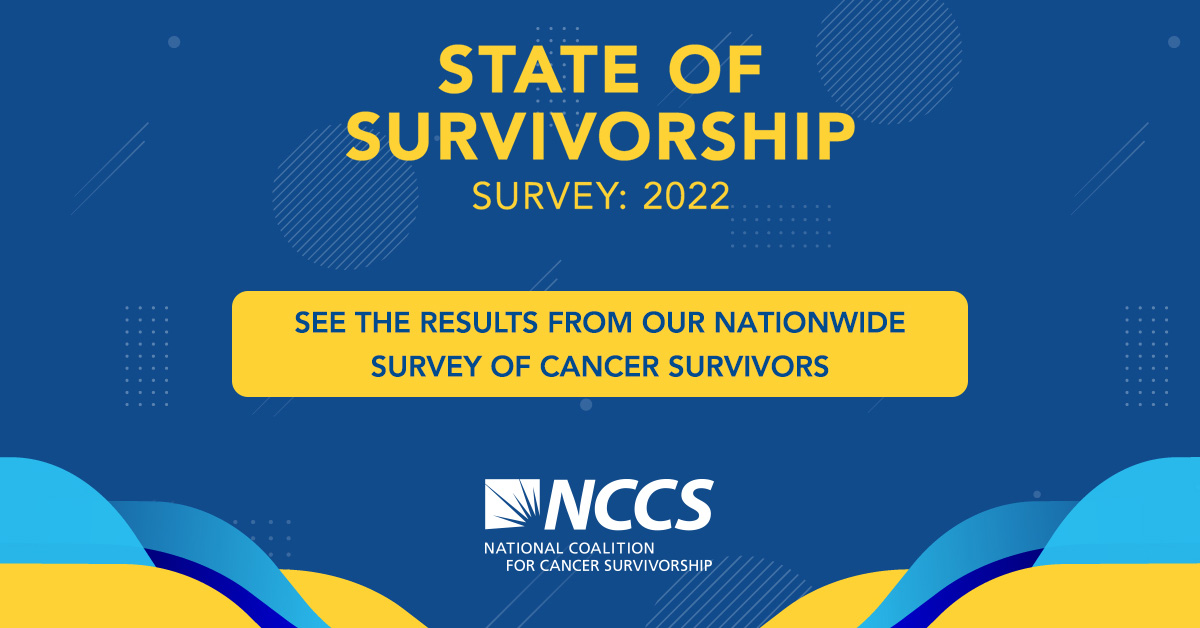NCCS Presents The State of Cancer Survivorship: 2022 Survey Results
The National Coalition for Cancer Survivorship (NCCS) conducts an annual State of Survivorship Survey, in partnership with Edge Research, to delve into the cancer patient and survivor journey. This study captures a range of perspectives to better understand how NCCS can support its mission to advocate for quality cancer care for all.
The 2022 State of Survivorship Survey delves deeper into the cancer journey, measuring satisfaction across different points, including screening and diagnosis, treatment and care, and post-treatment care. Among other key findings, this year’s results reflect alarming misdiagnosis rates particularly in underserved groups and young adults, survivors reporting symptoms long after treatment, and disparities in the equity of and access to quality cancer care disproportionately affecting people of color, young adults, women, and individuals with metastatic cancer. Additionally, the number of respondents who experienced physical, emotional, and financial issues has increased significantly, especially when it comes to financial concerns.
Shelley Fuld Nasso, NCCS CEO, shares “In our fourth year conducting the annual survey, we find that cancer survivors are generally satisfied with their care, even as they describe gaps in their care. Generally, they find that their health care team addresses the physical symptoms of cancer and cancer treatment better than the other challenges survivors face, including fatigue, depression and anxiety, concerns about exercise and nutrition, and financial concerns. Some groups of cancer survivors experience disproportionate burdens throughout their cancer journey, especially young adults, people of color, and people living with metastatic cancer. These findings inform our policy efforts to improve cancer care for everyone touched by cancer.”
On October 26, NCCS hosted a web briefing to present the findings from the 2022 survey. Pam Loeb, Principal of Edge Research, and Shelley Fuld Nasso discussed the results in detail and took questions from an audience of survivors, health care professionals, researchers, and more.
Watch the full briefing below or watch it on YouTube.
Survey Report Materials
Download the briefing presentation deck, full 2022 Survey Report, and more at https://canceradvocacy.org/survey2022.
Briefing Recording Sections
00:00 Introduction
01:18 Methodology, Key Findings
05:53 Deep Dive Into the Cancer Journey
11:48 Journey: Screening/Diagnosis
17:49 Journey: Treatment & Care
30:27 Journey: Post-Treatment
33:39 The Costs of Cancer
36:47 Integrative Oncology
40:00 Q&A
Additional Questions Asked
Were any childhood or adolescent cancer survivors included in the survey?
Respondents had to be age 18 or above, though they could have been diagnosed as a child or adolescent.
How does NCCS define survivorship?
NCCS defines “survivorship” as beginning from the time of diagnosis and lasting for the balance of life, and has expanded its definition of survivor to include family, friends, and caregivers.
What, exactly, do you mean by coordination of care?
We did not define coordination of care. It was left to interpretation. We have found this year and last year that people give high marks for coordination of care, even as they described care that was not well-coordinated. The question was “How well do/did your health care providers coordinate your care with one another?” Respondents gave high marks, but then answered follow-up questions indicating that they have to share information between providers. That is not the only measure of coordination of care, but it is one indicator. There is not a consensus definition of care coordination.
About the Speakers
Pam Loeb
 Pam provides trusted counsel and custom marketing research for clients big and small. As a Principal at Edge, she works regularly with marquee brands to design studies and provide insights that drive their business. While Pam enjoys working with corporations on their branding, messaging, advertising, and new product development, she is also passionate about helping non-profits with their unique challenges. Over the last 20 years, she has managed hundreds of studies for NGOs and professional associations to improve their communications and public awareness efforts.
Pam provides trusted counsel and custom marketing research for clients big and small. As a Principal at Edge, she works regularly with marquee brands to design studies and provide insights that drive their business. While Pam enjoys working with corporations on their branding, messaging, advertising, and new product development, she is also passionate about helping non-profits with their unique challenges. Over the last 20 years, she has managed hundreds of studies for NGOs and professional associations to improve their communications and public awareness efforts.
Shelley Fuld Nasso
 As Chief Executive Officer, Shelley Fuld Nasso leads the public policy activities of NCCS at a time of rapid and fundamental health care system change. Prior to joining NCCS, Shelley served in leadership roles at Susan G. Komen, where she leveraged Komen’s grassroots network in Washington, D.C., and in state capitals. Shelley’s commitment to the work of NCCS is strongly tied to the experiences in the cancer care system of her dear friend, Dr. Brent Whitworth, a beloved physician who was diagnosed with stage IV cancer days before his 42nd birthday and who passed away 19 months later. Through Brent’s experiences, Shelley witnessed the strengths and flaws of the cancer care system and embraces the notion that policy change can make cancer care better for patients and caregivers.
As Chief Executive Officer, Shelley Fuld Nasso leads the public policy activities of NCCS at a time of rapid and fundamental health care system change. Prior to joining NCCS, Shelley served in leadership roles at Susan G. Komen, where she leveraged Komen’s grassroots network in Washington, D.C., and in state capitals. Shelley’s commitment to the work of NCCS is strongly tied to the experiences in the cancer care system of her dear friend, Dr. Brent Whitworth, a beloved physician who was diagnosed with stage IV cancer days before his 42nd birthday and who passed away 19 months later. Through Brent’s experiences, Shelley witnessed the strengths and flaws of the cancer care system and embraces the notion that policy change can make cancer care better for patients and caregivers.
About National Coalition for Cancer Survivorship (NCCS)
National Coalition for Cancer Survivorship is the nation’s oldest survivor-led cancer advocacy organization advocating for quality cancer care for all people touched by cancer. Established in 1986 by 23 leaders with expertise in cancer research, community-based support programs, cancer information services and cancer advocacy, NCCS represents the more than 18.1 million Americans with a history of cancer by:
- working with legislators and policy makers to improve cancer patient and survivor quality of care and quality of life after diagnosis,
- advocating for changes in how our nation researches, regulates, finances, and delivers quality cancer care
- empowering cancer survivors through publications and programs which provide tools for self-advocacy, and
- convening other cancer organizations to address nationwide public policy issues affecting cancer survivors.



